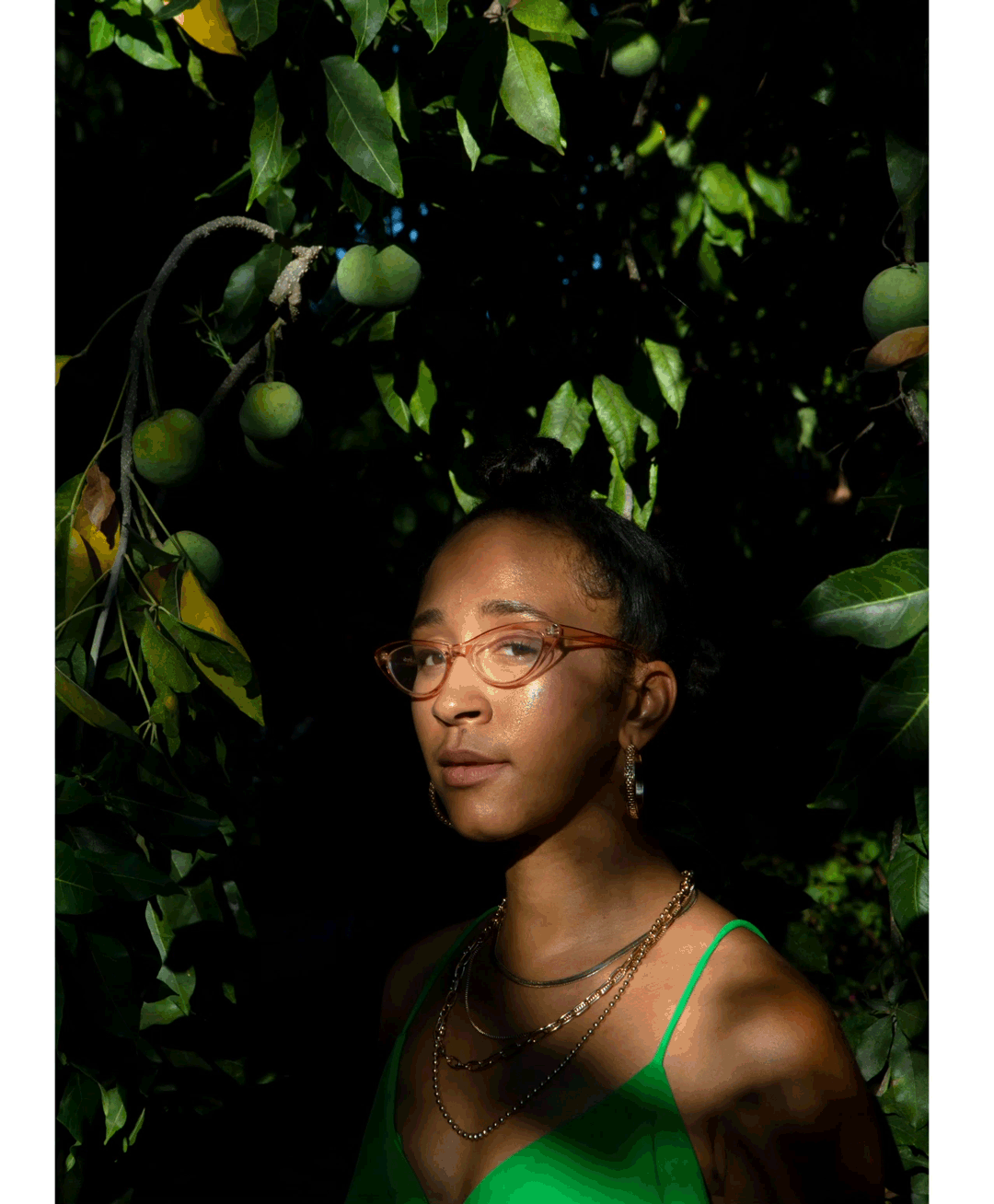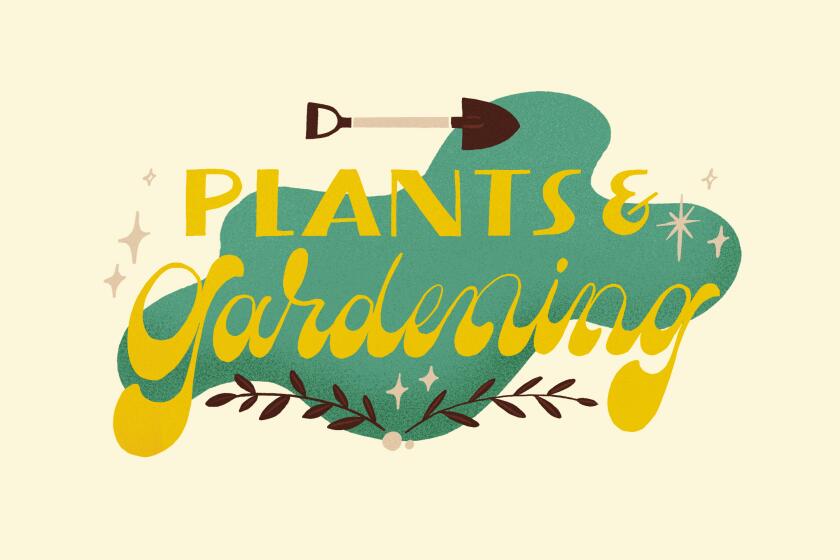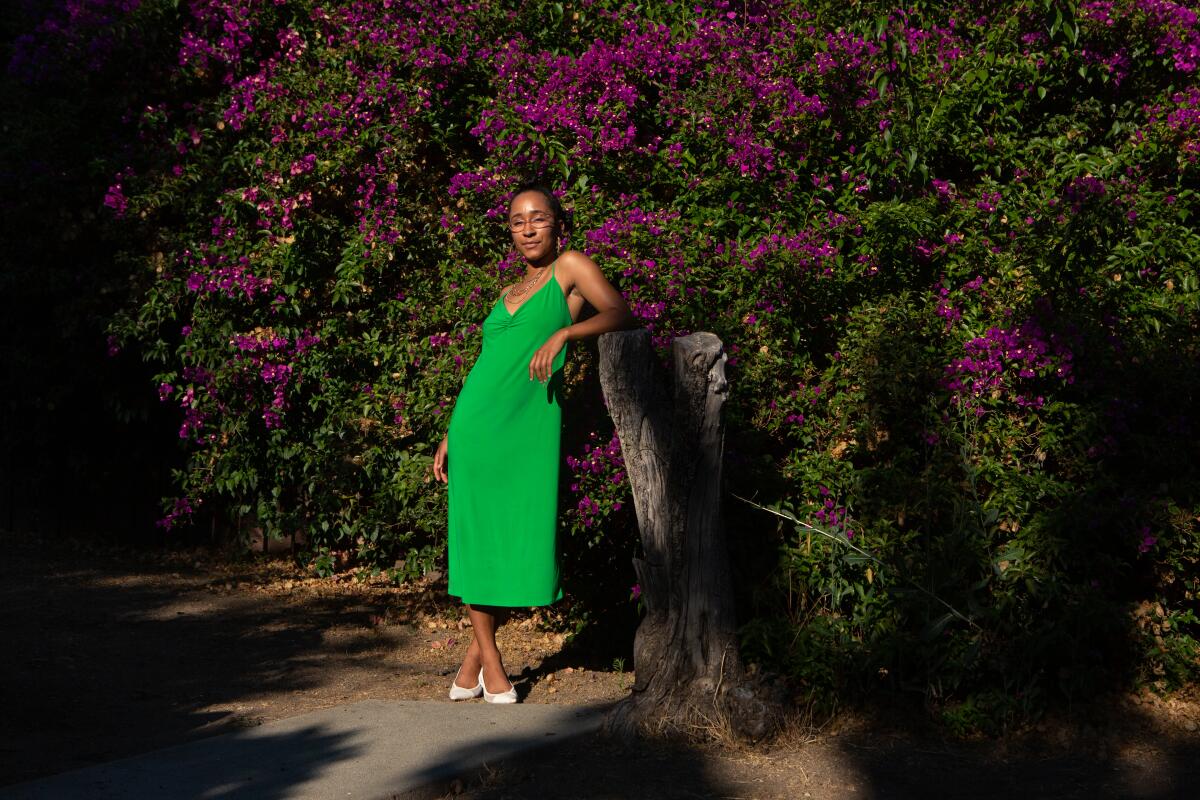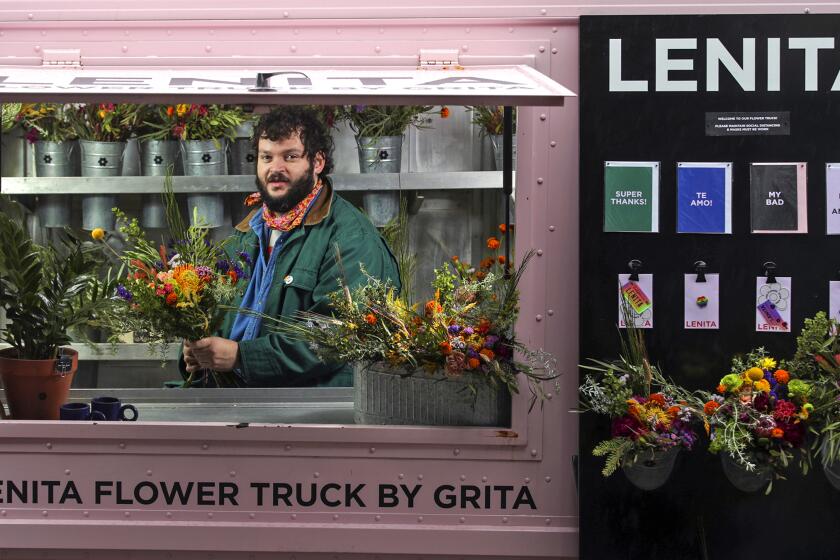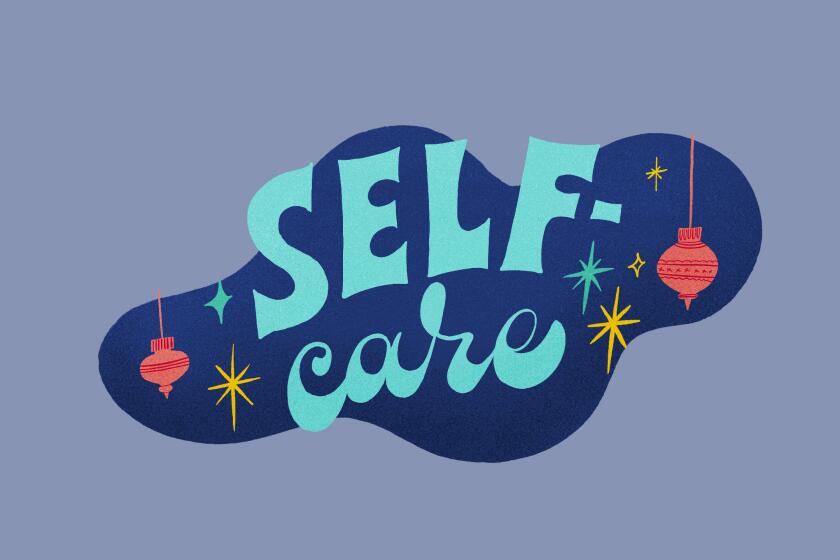Karen Rose, who owns Sacred Vibes Apothecary and Sacred Botanica in Brooklyn, is regarded as a pioneer in herbalism education. She describes her job as a Black herbalist as part troubleshooting, part counseling. Many times, customers approach her knowing they need something but not sure what. She investigates: “Why do you think you have the headache?” she asks, running down a list of possible causes. Maybe it’s related to a female patient’s cycle or a hormonal imbalance? What about computer screen fatigue or sleep deprivation? Is it because of a food allergy? “It’s asking those questions and then recommending herbs based on our knowledge,” she says.
Over the summer, when calls to #SupportBlackBusiness were strong on social media, Rose noticed a wave of young Black people who hadn’t used herbal remedies reaching out to explore their curiosity. They flooded Rose’s Instagram—where she prepares herbal concoctions, gives astrological forecasts and offers sage advice for her more than 50,000 followers — and her community shop, looking for ways to bolster their immune system against the virus and rid their nervous system of the anxiety the pandemic stirred up.
Sacred Vibes Apothecary typically carries herbal blends for biological and physiological issues such as sleep, digestion, anxiety, stress, allergies, pregnancy and circulation. But recently, Rose says, adaptogens such as reishi and immunomodulators such as astragalus — which can help the body respond to stress and protect the immune system — have been selling more. As have nervines for the nervous system, said to help people process anxiety, grief and overstimulation.
The change could be interpreted as a response to the times. Extraordinary circumstances have driven people to search for solutions outside traditional Western medicine. “Herbalists started to become who people felt safe with and relied on for healing,” she says.
Rose’s herbalist education began in Guyana, where she grew up drinking “bush tea” as a natural part of everyday life. It continued when her family immigrated to Flatbush, Brooklyn, a community teeming with healers from the Caribbean. “Immigrants in New York, that’s where we turn to for support,” Rose said. “There were really knowledgeable people in there that could help you.”
When she left Flatbush and pursued a formal herbal education, she found that the systems catered mainly to white, Western interpretations of herbalism and were a far cry from the traditions she knew. She attended herbal conferences in the 1990s while completing a two-and-a-half-year apprenticeship program at an Arizona apothecary called the Herb Stop, but the conferences lacked the spiritual connection to the plants — and Black teachers on their lineups. “I stopped going because no one at that point was talking about spirit and plants,” she recalls. “Gone were all the stories about why the plant was used, gone was all the ancestral tradition behind it, gone was this rich legacy of people whose medicine you’re using.”
Frustrations over the Western appropriation of herbalism are shared among many Black herbalists. “We’re not about to act like racism isn’t in herbalism,” says Regina Pritchett, 34, who runs the online apothecary In Her It Blooms from her home base in Lansing, Mich., “I know I’ve felt uncomfortable in a lot of these herbal spaces, and I’ve had to deliberately seek out teachers who are of color.”
The L.A.-based herbalist and educator Sade Musa started Roots of Resistance to help people of color connect to their traditions. The educational project hopes to challenge narratives that minimize, or erase, Black contributions to herbalism. Musa hosts wellness consultations and classes, such as the Herbal Tea Turnup series, which delves into the African origins or uses of various teas. Musa describes these classes as a “family reunion” of sorts — a space to cultivate joy and a sense of community. There she tries to equip her students with tools to push back on “the white supremacist myths prevalent in mainstream herbalism.”
“Just being near a plant can have a soothing and grounding effect on our spirits,” Musa said.
“Connecting with plants as medicine can build resilience in our bodies, fortifying us against
stressors — such as living in a white supremacist society.”
In Brooklyn, Rose started an apprenticeship program through her Sacred Vibes Apothecary in 2010 — a year after the shop opened — so no other Black herbalist would have to feel as though they were the only one in the room. She has mentored close to 400 students with a focus on reconnecting the next generation of Black and brown healers to their roots.
“I made it a point that I was going to educate as many Black women, as many BIPOC-identifying people as I could get my hands on with the intention of reclaiming our medicine,” she says.
During the pandemic and uprisings, reclamation has taken the form of activism. Musa has been involved with multiple herbal mutual aid networks to serve Black people since summer, including volunteering with the L.A. Herbalist Collective. The grassroots effort supports at-risk communities with herbal medicine and, in the wake of worldwide protesting over racism and police brutality, began providing resources to activists on the ground.
Upon learning that COVID-19 was disproportionately impacting Black and brown people, Pritchett established an online herbal apothecary to address the underlying health conditions that made people of color more vulnerable to the virus. She also put out a call for Herbal Reparations on Instagram, urging her followers to support Black, Indigenous, queer and trans people of color in getting a wellness consultation and custom herbal medicine through her apothecary.
Herbal Reparations has raised enough money ($2,390 from 96 people) to provide 20 consultations to healers, activists, protesters, frontline workers and parents.
